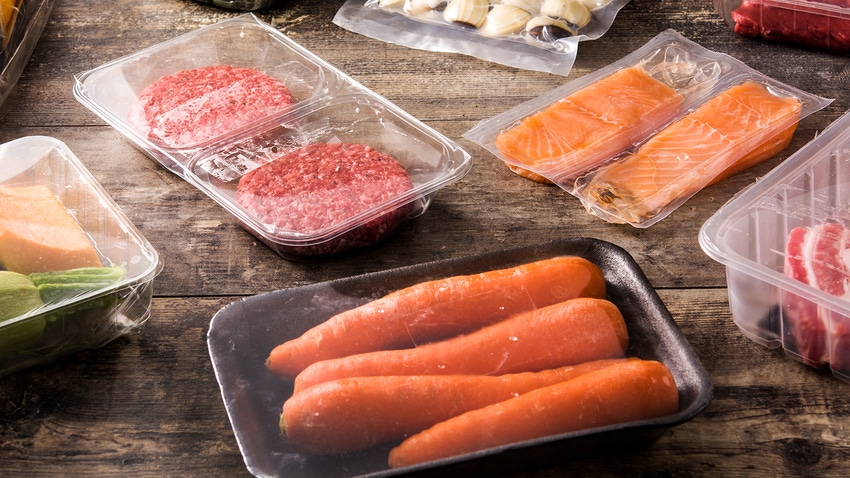New sustainable F&B plastic packaging removes fossil fuels
Finland-based Neste has developed a technology that enables food and beverage manufacturers to take the fossil fuels out of plastics, without compromising functionality or safety.

At a Glance
- Consumers are increasingly demanding sustainable food and beverage packaging, as it influences their purchasing decisions.
- Neste is providing bio-based, recycled feedstock to plastic producers, which can be used to make sustainable packaging.
- Neste’s solutions, whether bio-based or recycled, aim to be a 1:1 replacement for crude oil in plastics.
As demands for more sustainable foods and beverages grow, consumers are increasingly turning an eye toward packaging. In fact, 72% of consumers said a product’s packaging influences their purchase decision.
Plastic, specifically, has come under fire in recent years.
According to Euromonitor International's Top 10 Global Consumer Trends of 2019, an estimated 63% of global packaging across the food, beverage, beauty, home care and pet food industries is made from plastic. The data further showed that the number of consumers who said they’re willing to pay more for eco-friendly packaged and fresh food products increased from 2015 to 2017.
Finland-based Neste’s technology is paving the way for food and beverage companies to take fossil fuels out of their plastic products.
“Basically, our focus is to find more sustainable alternatives for the polymers and chemicals industry, and one of the market segments we’re focusing on [is] food and beverage,” Maria Carcolé, head of brand owner management at Neste Renewable Polymers and Chemicals, said.
While Neste does not produce plastics used in food packaging, the company provides plastics producers with feedstock—the raw material used to create polymers that are then used for packaging in the food and beverage industry.
Feedstock is also the source of fossil fuels in conventional plastics.
Traditionally, feedstock is made using fossil fuels like oil, natural gas and coal. These fossil fuels produce olefins like ethylene and propylene, the primary feedstock used in traditional plastics.
Unlike feedstock derived from fossil fuels, Neste’s renewable, bio-based feedstock is sourced primarily from waste and residue, like oils and fats.
“What it’s allowing is to reduce the greenhouse gas [GHG] emissions,” Carcolé said. “It means that the plastic that our customer can create with this raw material we provide to them is a plastic that will have a lower impact in terms of GHG emissions.”
Neste’s bio-based feedstock was employed by McDonald’s for use in its plastic beverage cups in 2022. What’s more, the bio-based material used to create the feedstock for McDonald’s plastic cups is used cooking oil sourced from some of its restaurants.
“We are able to transform used cooking oil like the one that is produced in the restaurants of McDonald's in the U.S. and then create this feedstock that then we can sell to a plastic producer who then will produce the plastic,” Carcolé explained. “Then, they will sell that to a converter. Ultimately, this creates the packaging that McDonald’s is using in their restaurants.”
In addition to bio-based feedstock, Neste provides a feedstock that’s based on advanced recycling or chemical recycling.
“Because what we are producing is a feedstock that allows for the creation of plastics that are the same as the fossil counterpart, these plastics will behave the same in terms of mechanical properties,” Carcolé said. “They also behave the same, in terms of recycling. So here comes a second challenge, right?”
Neste works with third-party groups like waste management companies, as well as pyrolysis companies, who collect, sort and convert used plastics into liquefied waste plastic.
“Then, we upgrade [the liquefied waste plastic] and we make from this type of oil, at the end of the day, something that a plastic producer can convert into a new plastic,” Carcolé explained.
Importantly, unlike many bioplastics that require producers to employ different technologies throughout the production process, Neste’s solution only impacts the beginning of the value chain when conventional feedstock is replaced with Neste’s renewable or recycled solutions.
According to the company, its renewable or recycled solutions can be a 1:1 replacement for crude oil in plastics in almost all applications.
About the Author(s)
You May Also Like






